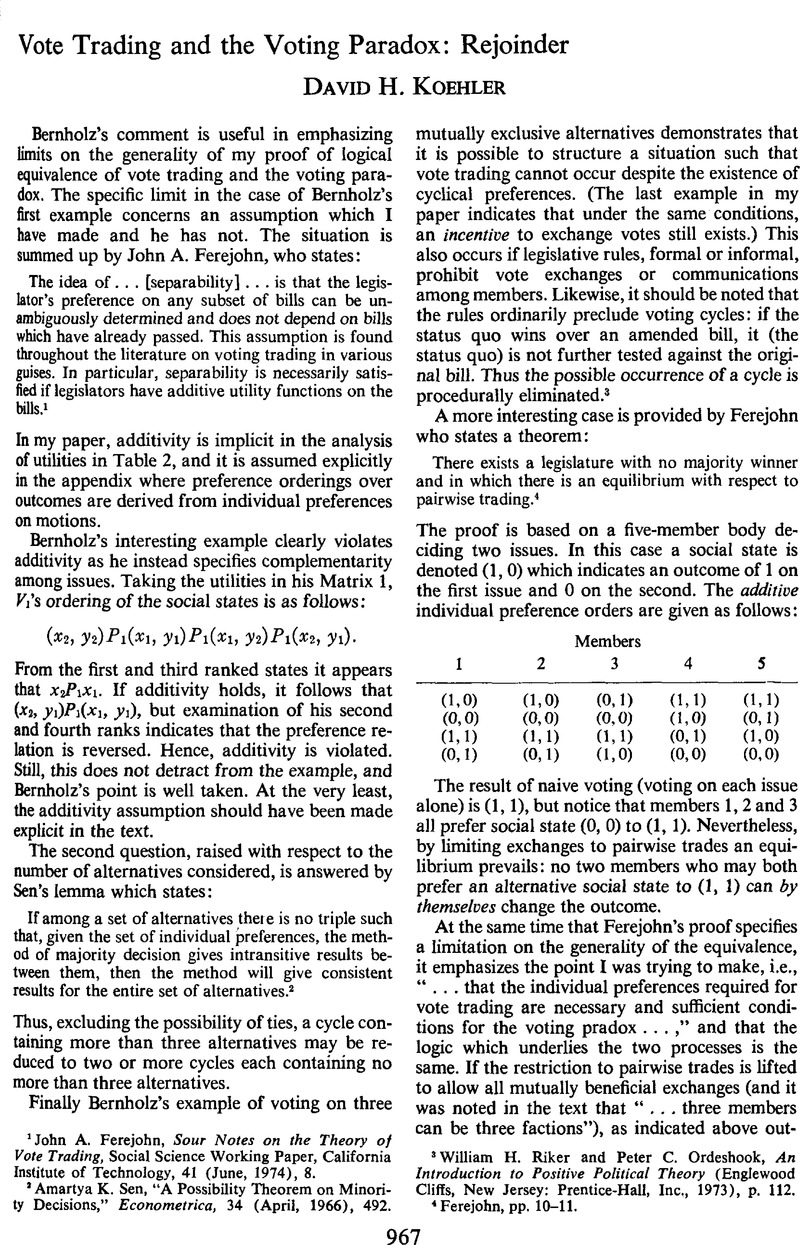Published online by Cambridge University Press: 01 August 2014

1 Ferejohn, John A., Sour Notes on the Theory of Vote Trading, Social Science Working Paper, California Institute of Technology, 41 (06, 1974), 8 Google Scholar.
2 Sen, Amartya K., “A Possibility Theorem on Minority Decisions,” Econometrica, 34 (04, 1966), 492 CrossRefGoogle Scholar.
3 Riker, William H. and Ordeshook, Peter C., An Introduction to Positive Political Theory (Englewood Cliffs, New Jersey: Prentice-Hall, Inc., 1973), p. 112 Google Scholar.
4 Ferejohn, pp. 10–11.
5 Downs, Anthony, An Economic Theory of Democracy (New York: Harper and Row Publishers, Inc., 1957), pp. 54–60 Google Scholar.
Comments
No Comments have been published for this article.